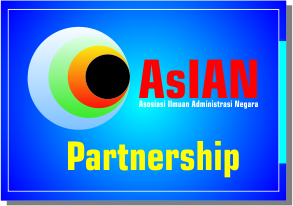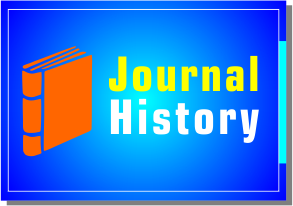Implementasi Manajemen Pengetahuan di Lingkungan Badan Pendidikan dan Pelatihan Keuangan
DOI:
https://doi.org/10.31334/transparansi.v5i2.2706Keywords:
knowledge management, corporate university, FETA, Ministry of FinanceAbstract
Knowledge management has three important elements that can affect the successful implementation of knowledge management, namely people, process, and technology. The implementation of knowledge management within the Ministry of Finance officially began when the Minister of Finance Regulation Number 226 of 2019 concerning Knowledge Management in the Ministry of Finance was issued. However, the implementation of knowledge management has actually been going on for quite a long time at the Ministry of Finance, including the Financial Education and Training Agency as one of the echelon I units within the Ministry of Finance. This study tries to identify various forms of knowledge management implementation within the Financial Education and Training Agency considering that in the Minister of Finance Regulation Number 226 of 2019 the Financial Education and Training Agency has a more role in the management of knowledge management at the Ministry of Finance level. The results of the study indicate that the Financial Education and Training Agency has implemented knowledge management in various forms, especially related to elements of knowledge management, both related to people, process, and technology.References
Kementerian Pendayagunaan Aparatur Negara dan Reformasi Birokrasi. (2011) Peraturan Menteri
Negara Pendayagunaan Aparatur Negara dan Reformasi Birokrasi Nomor 14 Tahun 2011
tentang Pedoman Pelaksanaan Program Manajemen Pengetahuan (Knowledge Management).
Carter, C., and Scarbrough, H. (2001). Towards a second generation of KM the people management
challenge. Education + Training, Vol.43, No.4/5, p.215-224.
Clarke, T. (2001). The knowledge economy. Education + Training, Vol.43, No.4/5, p.189-196.
Collison, C., and Parcell, G. (2005). Learning to fly – practical knowledge management from leading
and leaning organizations, Capstone Publisher.
Davenport, T.H., De Long, D.W., and Beers, M.C. (1998). Successful knowledge management
projects. Sloan Management Review, Vol.39, No.2, p.43-57, Winter.
Fatwan, S., and Denni, A. (2009). Indonesian MAKE, study and lessons learned from the winners,
Jakarta: PT Gramedia.
Hendrik. (2003). Sekilas tentang knowledge management. Artikel Populer IlmuKomputer.Com,
copyright@2003IlmuKomputer.Com.
Salzano, A Knowledge Management Framework and Approach for Clinical Development.
Bhatt , EFQM: Excellence Model and Knowledge Management Implications
http://citeseerx.ist.psu.edu/viewdoc/download?doi=10.1.1.573.6798&rep=rep1&type=pdf
https://journals.sagepub.com/doi/pdf/10.1177/2168479016664773
https://www.knoco.com/knowledge-management-framework-design.htm
Downloads
Published
Issue
Section
License

This work is licensed under a Creative Commons Attribution-ShareAlike 4.0 International License
Please find the rights and licenses in Transparansi : Jurnal Ilmiah Ilmu Administrasi By submitting the article/manuscript of the article, the author(s) agree with this policy. No specific document sign-off is required.
- License
The commercial use of the article will be governed by the Creative Commons Attribution license as currently displayed on Creative Commons Attribution-ShareAlike 4.0 International License.
2. Author(s)' Warranties
The author warrants that the article is original, written by stated author(s), has not been published before, contains no unlawful statements, does not infringe the rights of others, is subject to copyright that is vested exclusively in the author and free of any third party rights, and that any necessary written permissions to quote from other sources have been obtained by the author(s).
3. User Rights
Transparansi : Jurnal Ilmiah Ilmu Administrasi spirit is to disseminate articles published are as free as possible. Under the Creative Commons license, Transparansi : Jurnal Ilmiah Ilmu Administrasi permits users to copy, distribute, display, and perform the work for non-commercial purposes only. Users will also need to attribute authors and Transparansi : Jurnal Ilmiah Ilmu Administrasi on distributing works in the journal and other media of publications.
4. Co-Authorship
If the article was jointly prepared by more than one author, any authors submitting the manuscript warrants that he/she has been authorized by all co-authors to be agreed on this copyright and license notice (agreement) on their behalf, and agrees to inform his/her co-authors of the terms of this policy. Transparansi : Jurnal Ilmiah Ilmu Administrasi will not be held liable for anything that may arise due to the author(s) internal dispute. Transparansi : Jurnal Ilmiah Ilmu Administrasi will only communicate with the corresponding author.
5. Miscellaneous
Transparansi : Jurnal Ilmiah Ilmu Administrasi will publish the article (or have it published) in the journal if the article’s editorial process is successfully completed. Transparansi : Jurnal Ilmiah Ilmu Administrasi editors may modify the article to a style of punctuation, spelling, capitalization, referencing and usage that deems appropriate. The author acknowledges that the article may be published so that it will be publicly accessible and such access will be free of charge for the readers as mentioned in point 3.
Every accepted manuscript should be accompanied by "Copyright Transfer Agreement"prior to the article publication.











